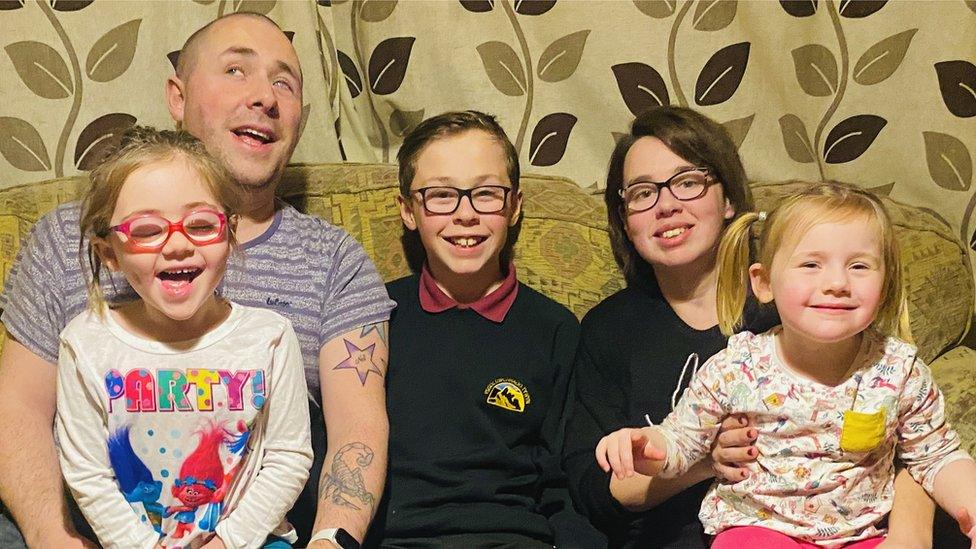Art: Monet painting stars in refugee exhibition
- Published
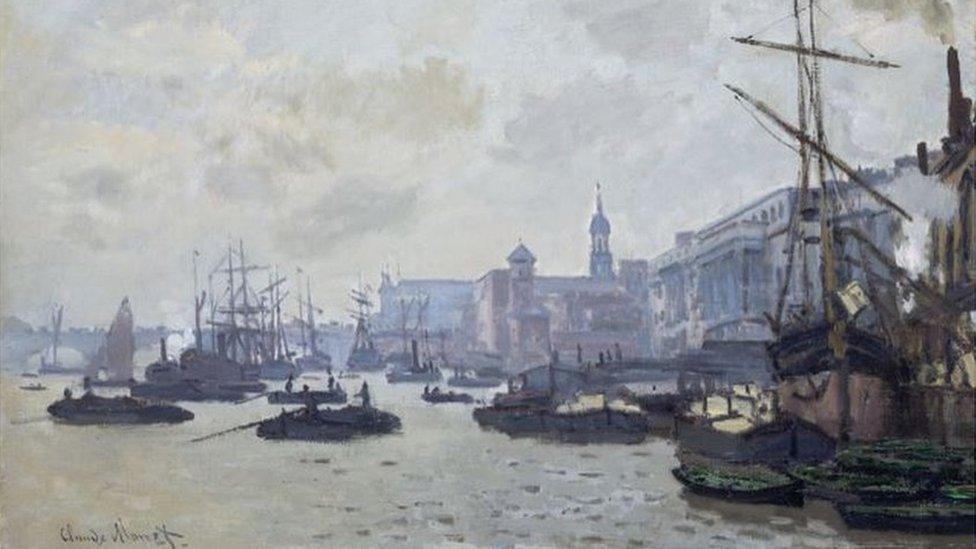
Claude Monet painted this piece in London after escaping the Franco-Prussian war
A painting by French impressionist painter Claude Monet is the star of a new exhibition of refugee art in a rural Welsh town.
The Museum of Modern Art (MOMA) in Machynlleth, Powys, is focusing on works produced by migrants.
Wales-based artists including the Polish painter Josef Herman are among those whose work is displayed.
Curator Dr Peter Wakelin said he wanted to highlight the "positive influence" of refugee artists.
The Refuge and Renewal exhibition focuses on refugees from the Nazis, as well as stretching back to those displaced by the Franco-Prussian War and more recent political migrants.
The work by Monet was painted in London after he escaped the Franco-Prussian war in 1870, and shows a scene on the River Thames.
"Monet was just really starting to develop his ideas about impressionism when the Franco-Prussian war broke out in 1870," Dr Wakelin said.
"He fled across the channel quickly, came to Britain, and he fell in love with painting London.
"In the year that he was here he really struggled, and he said he would have nearly starved had his dealer not come as well and sold a few works.
"But what he loved about it was studying a new environment, particularly the industrial life of the River Thames, a completely different atmosphere to what he was used to."
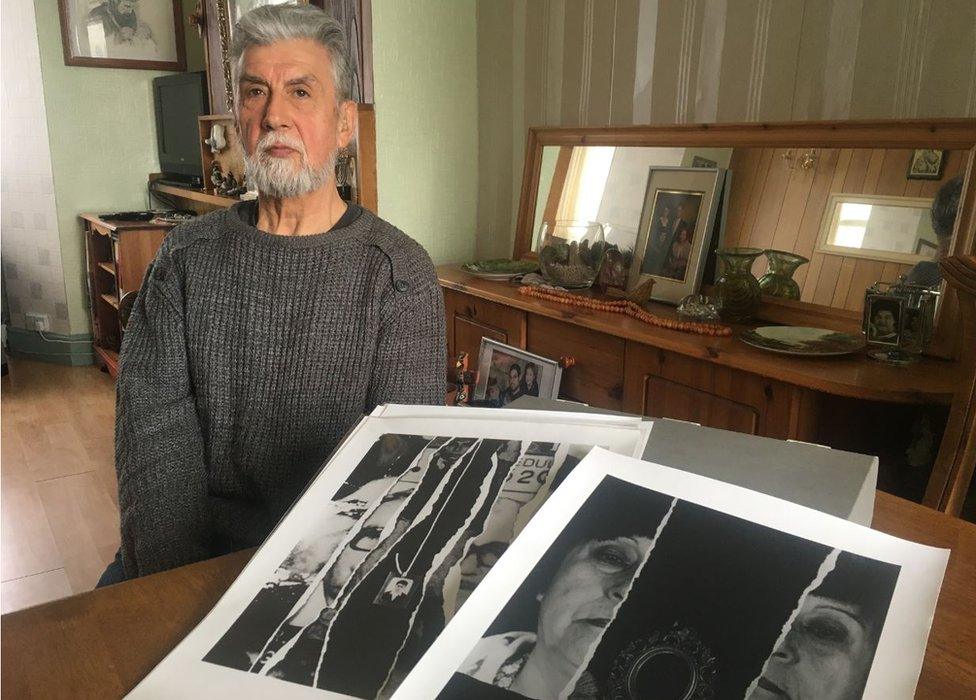
Humberto Gatica said people who describe art as therapy "are absolutely right"
Works by the Chilean photographer Humberto Gatica are included in the show.
He and his wife fled Chile after being imprisoned by the Pinochet regime in the 1970s. They settled in Swansea where they still live today.
Using family photos, Mr Gatica creates new images which depict the pain felt by those who had to leave behind loved ones when they were forced into exile.
"It shows many different appearances. For instance there is death, loss, emptiness," he said.
"I started creating that work because I started to ask 'Who am I, what am I trying to express?' And then I realised that throughout my life I was dealing with pain, and so I tried to work in that area."
Mr Gatica said art and poetry helped him come to terms with his experiences as a refugee: "Yes, it is OK to feel sorry for yourself for a while, but after that you need to go forward. And going forward, photography and poetry helped me a lot."
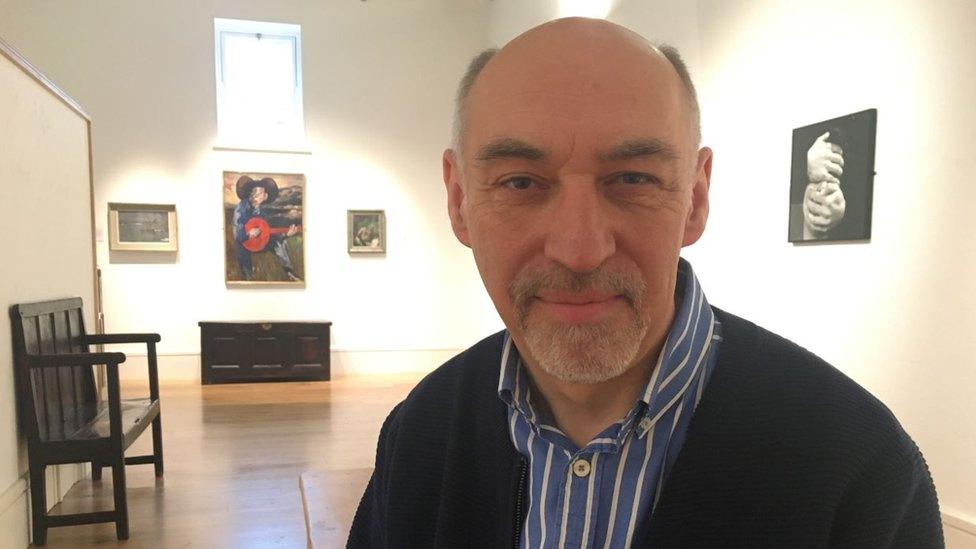
Dr Peter Wakelin said he wanted to celebrate Wales' history as a place of sanctuary
The exhibition, which runs until 6 June, has taken years of planning and has depended on loaning works from major galleries and private collectors.
Dr Wakelin said: "Wales has often had a record of being very good to refugees and wanting to bring them into Welsh life.
"You look at people like Heinz Koppel and Josef Herman who established themselves, and had a huge impact, because they were appreciated by the people in Wales that they met - especially in the valleys.
"There was also the period in the First World War when the Davies sisters of Gregynog were so positive in creating homes for Belgian artists who came to Britain. They wanted them to have a positive influence on professionalising art in Wales."
- Published11 March 2020
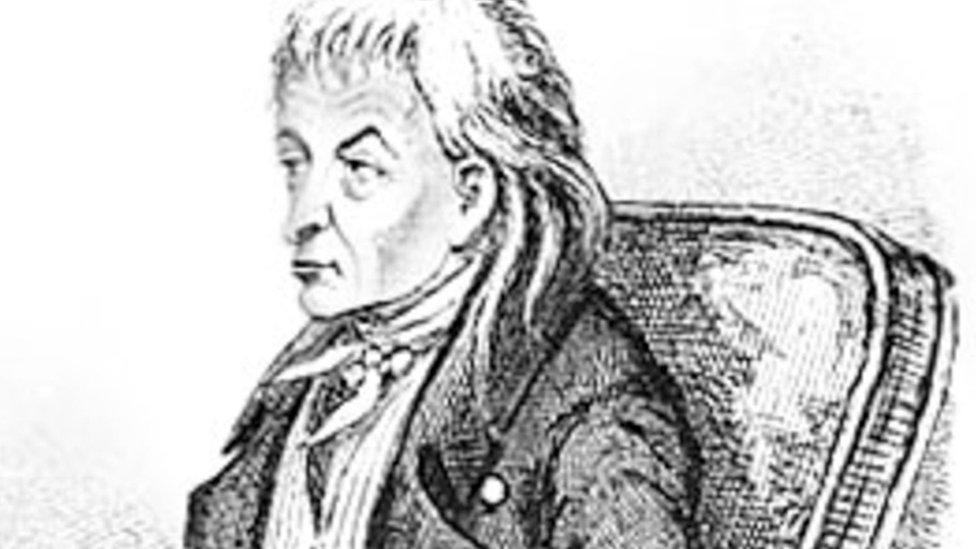
- Published9 March 2020
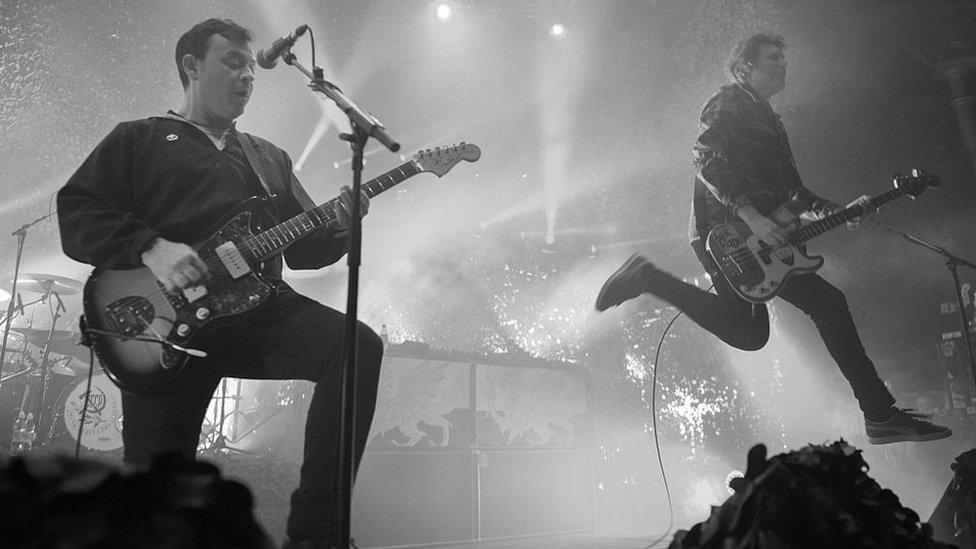
- Published13 February 2020
